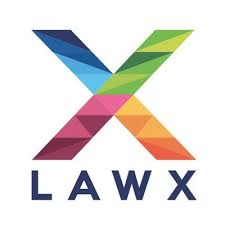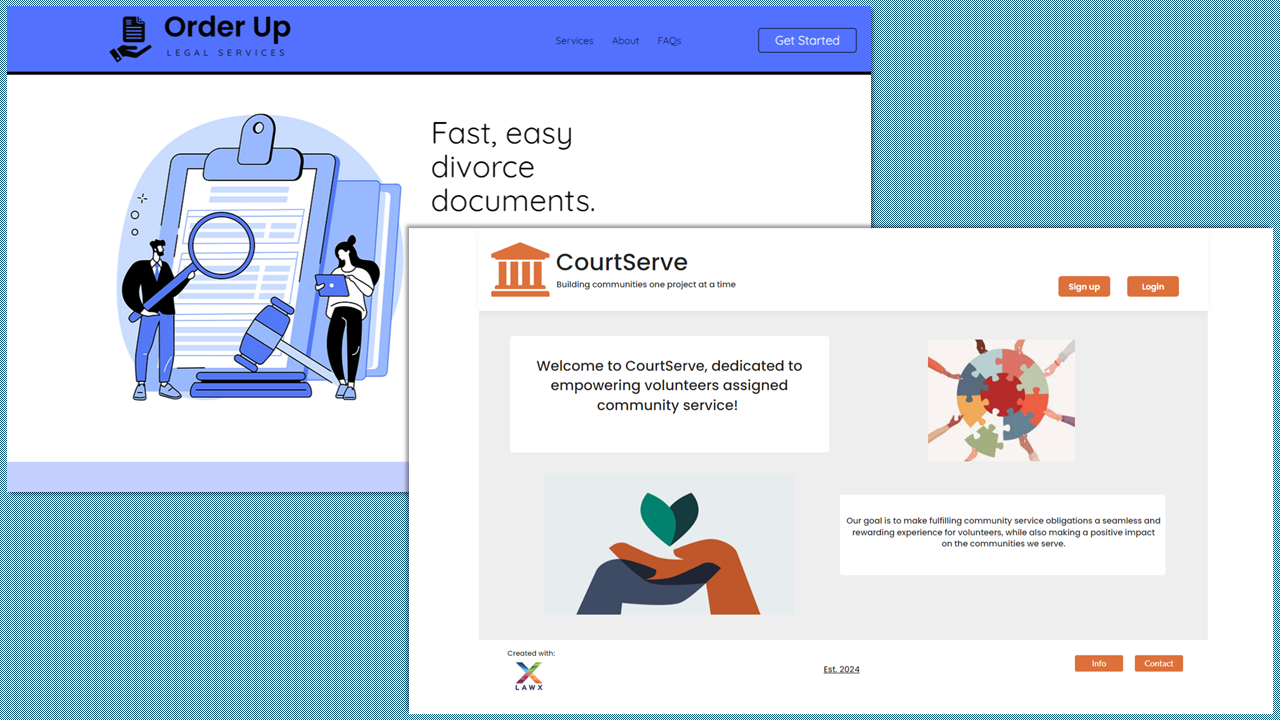Two teams of law students, as part of their education at Brigham Young University Law School, have developed applications targeting issues of access to justice, and today, on the last day of classes, they will showcase what they have built at a special event expected to be attended by members of the local legal and academic communities, but also by potential investors.
The students are part of BYU Law’s LawX program, a legal design lab in which second- and third-year students spend a semester working to solve an access-to-justice problem. Since its launch in 2017, the lab has generated several viable products, the most commercially successful of which has been SoloSuit, which was developed during the lab’s first year and which is now run by a CEO, George Simons, who was one of the students who developed it.
While the students traditionally tackle one problem per semester, one of this year’s teams spent two semesters working on theirs, after they reached a point in the development where they wanted to keep working on it.
 Their project, Order Up, is a document automation platform for divorce documents, focused on simplifying the process of creating financial declarations. Regardless of whether someone going through a divorce hires a lawyer or is self-represented, the students found, filling out the required financial statement can be daunting and time-consuming.
Their project, Order Up, is a document automation platform for divorce documents, focused on simplifying the process of creating financial declarations. Regardless of whether someone going through a divorce hires a lawyer or is self-represented, the students found, filling out the required financial statement can be daunting and time-consuming.
Nick Hafen, head of legal technology education at BYU Law, who oversees the LawX program, told me that the students initially targeted a more-ambitious issue, automating the process of seeking temporary orders of any kind in divorce proceedings. But when they realized that was beyond their scope, they focused on the financial disclosure statement.
The product they built uses the documentation automation platform Gavel t0 create a financial statement that conforms with the requirements of Utah law. They have been testing the product through the law school’s Family Law Clinic directed by Professor Susan Griffith.
Facilitating Community Service
The second product developed this year, CourtServe, targets a much-different problem, that of enabling criminal offenders to perform court-ordered community service as an alternative to fines.
The platform connects judges, charities and people convicted of certain misdemeanors or infractions to make it easier for judges to assign community service. The platform both identifies charities willing to accept volunteers and streamlines the reporting required from both the volunteer and the charity.
Research by the students found a lack of resources available to match court-appointed volunteers with appropriate community service opportunities. They also found that judges are hesitant to assign community service due to lack of tools to find volunteer opportunities and an archaic recording process that strains court resources.
The law school says that the prototype has received positive feedback from judges as well as adult probation and parole supervisors who agree the resource makes it more likely a judge would assign community service in lieu of fines.
The Student Teams
The students who developed CourtServe are:
- Hayden Moss (who also came up with the original idea).
- Coy Christensen.
- Jared Dixon.
The students who worked on Order Up are:
A group of three LawX codirectors from the private sector oversaw the CourtServe project this semester and the Order Up project in its first semester: Eric Vogeler, general counsel at ShedRx; Joseph Hinckley, senior manager, venture counsel program, at law firm Wilson Sonsini; and Justin Whittaker, founder of Jeri, a company that connects businesses with remote workers.
Hafen, who became BYU Law’s head of legal technology education last year, served as the director of the Order Up project this semester.
The LawX lab was originally conceived by Kimball D. Parker, who is now CEO of document automation company SixFifty, and D. Gordon Smith, who was then the law school’s dean, having stepped down from that role last year.
In 2017, I had the opportunity to sit in with the lab’s inaugural class and meet the students and faculty involved in it. As I wrote at the time, it was an opportunity to see innovation in action.
 Robert Ambrogi Blog
Robert Ambrogi Blog